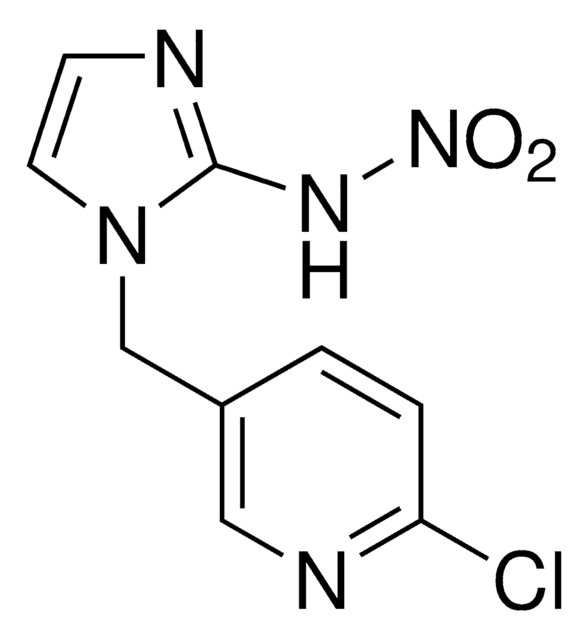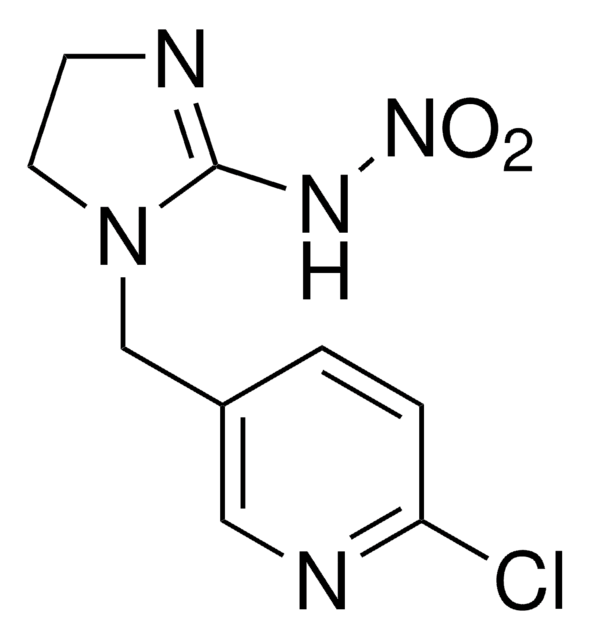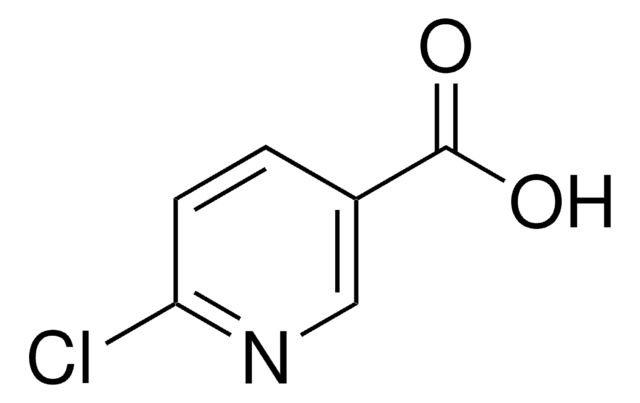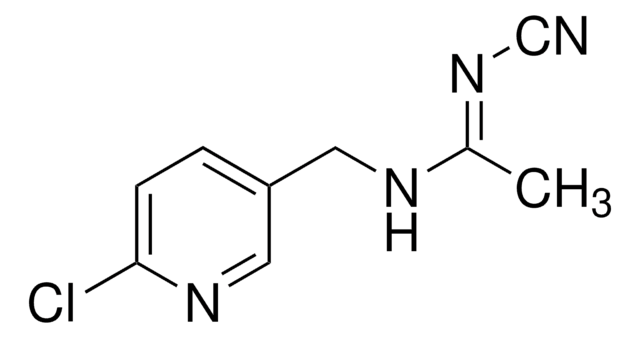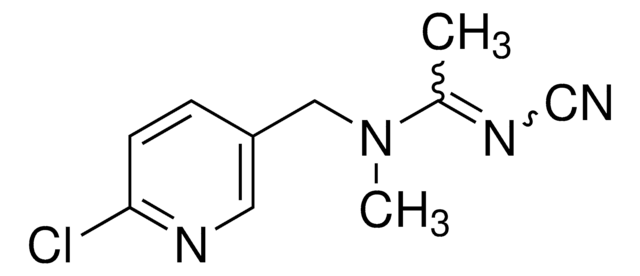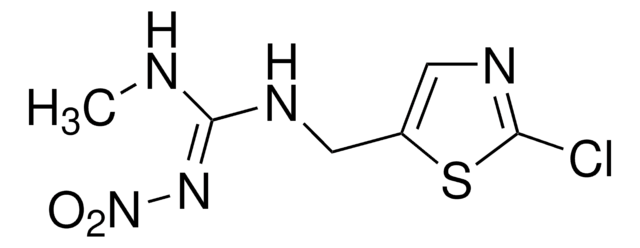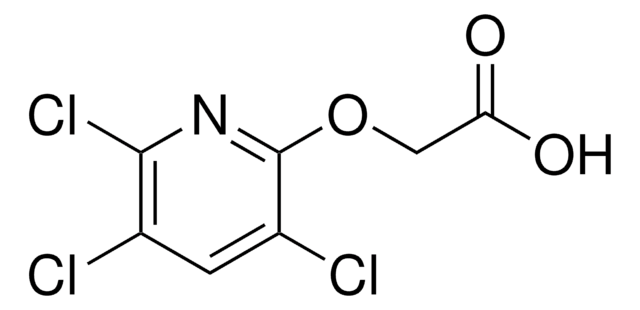37052
Desnitro-imidacloprid hydrochloride
PESTANAL®, analytical standard
Synonym(s):
1-(2-Chloro-pyridin-5-yl-methyl)-2-imino-imidazolidine hydrochloride
About This Item
Recommended Products
grade
analytical standard
Quality Level
product line
PESTANAL®
shelf life
limited shelf life, expiry date on the label
technique(s)
HPLC: suitable
gas chromatography (GC): suitable
application(s)
agriculture
environmental
format
neat
SMILES string
Cl.Clc1ccc(CN2CCNC2=N)cn1
InChI
1S/C9H11ClN4.ClH/c10-8-2-1-7(5-13-8)6-14-4-3-12-9(14)11;/h1-2,5H,3-4,6H2,(H2,11,12);1H
InChI key
HAFNUTBIMPVXKF-UHFFFAOYSA-N
General description
Application
Recommended products
Legal Information
Signal Word
Warning
Hazard Statements
Precautionary Statements
Hazard Classifications
Acute Tox. 4 Oral - STOT RE 2 Oral
Target Organs
Nervous system
Storage Class Code
11 - Combustible Solids
WGK
WGK 3
Flash Point(F)
Not applicable
Flash Point(C)
Not applicable
Choose from one of the most recent versions:
Certificates of Analysis (COA)
Don't see the Right Version?
If you require a particular version, you can look up a specific certificate by the Lot or Batch number.
Already Own This Product?
Find documentation for the products that you have recently purchased in the Document Library.
Protocols
Learn more about Neonicotinoids - active substances used in plant protection products to control harmful insects.
On Friday, April 27, 2018, the European Union decided to ban the use of three neonicotinoid insecticides from use on field crops, having deemed them dangerous to bees. This application demonstrates the analysis of these banned compounds and others from dandelion blossoms using QuEChERS and LC-MS.
Our team of scientists has experience in all areas of research including Life Science, Material Science, Chemical Synthesis, Chromatography, Analytical and many others.
Contact Technical Service